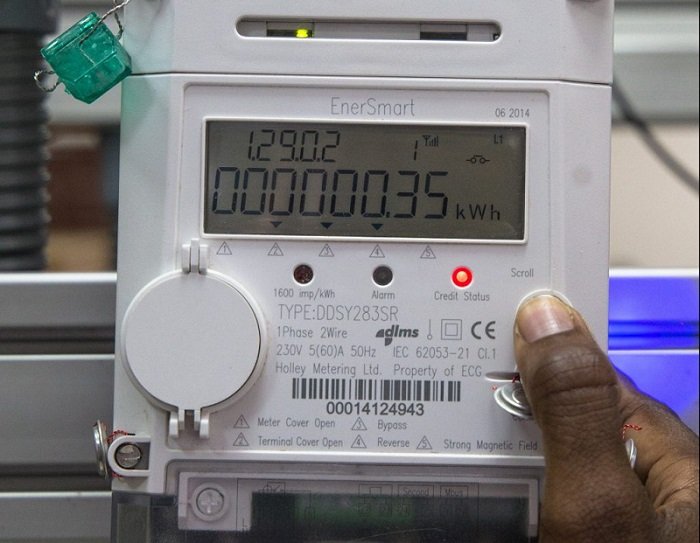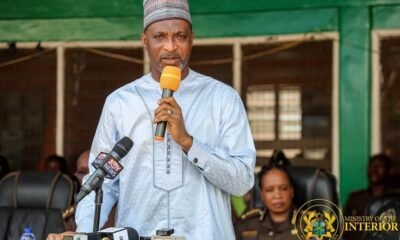Editorial
Enough of the destruction!

Dear Editor,
About a month ago, I wrote about the rift between the Electricity Company of Ghana and residents of Somanya in the Yilo Krobo District and asked the parties involved to resolve their differences amicably.
But just when I thought the tension was easing, I read the news report about how some residents have decided to vent their spleen on electric poles belonging to the service provider.
This development is unfortunate and makes some of us wonder whether, indeed, the people are listening to the plea by management of the company and that of their own traditional authority.
We are told the area has been without electricity, since July 27, 2022, due to the decision of the ECG to cut power to the area following actions by a section of the people not to allow the company to replace their postpaid meters with prepaid ones.
However, the chiefs and the people of the District recently appealed to the ECG to restore power supply to the area to enable residents to go about economic activities but I ask how power can be restored when “faceless” persons go about cutting down the same poles that are supposed to supply power to the area.
I wish to state that citizens cannot continue to take the law into their own hands, no matter the level of their grievances. We are told some of the poles have been replaced but that will certainly come at a cost to the service provider.
If these unfortunate incidents continue to happen, I fear the chiefs and people of the area would have a lot to do in order to restore their waning reputation. I think the residents have expressed their anger well enough and it is time the lawlessness was stopped as the matter is being resolved.
Frank Gyamfi,
Taifa, Accra.
Editorial
Kudos to Ho Teaching Hospital staff, but …
Dear Editor,
If there is any group of professionals that get bad-mouthed the most, then you are referring to nurses and medical doctors assigned to public hospitals across the country.
For this particular letter, I want to sing the praises of this same group of professionals that work at the Ho Teaching Hospital, famously known as Trafalgar.
Despite the work load and the mass casualties received at the emergency ward of the hospital, the welcoming nature of the nurses and the professional touch by the doctors can’t be ignored. My personal experience has got me travelling from my base in Accra to seek medical services from these professionals.
Special mention has to be made of the likes of Precious of the Pharmacy Department, Dr Brandon Banor (a maxillofacial resident) of the Dental unit, male nurse Justice assigned to the female surgical ward. Words cannot really do justice to their affable, professional caring nature. A simple thank you is all that I can say.
In the same vein, I can’t but call out the bad attitude of the auxiliary staff and contractors of the hospital.
Chief among them is some of the contracted bank staff that handle the payment section of the hospital and the patient registration section (those that check the status of the patient as to whether they are fee paying patients or NHIS sponsored).
The attitude at times leaves a bad taste in the mouth. One such occurrence was a night staff of the registration section who had her legs on the office table whilst talking to patients.
The CEO of the hospital needs to shine his torch light on this support sections before they erode the awesome performance of the direct medical staff of the hospital.
Thank you for the space.
Kwesi Manu
Accra
Editorial
Develop policies to address disability concerns
Dear Editor,
AT the beginning of the year, when I went to the bank to deposit money into my uncle’s account, I observed a very sad situation where a man in a wheelchair struggled to navigate his way around the facility.
This is because the structure is disability unfriendly.
As I stood and watched how the man struggled to move his wheelchair, I felt sad and wondered if this is how the life of a disabled person should be. It becomes worse if there is no one to offer help.
In Ghana, People With Disabilities (PWDs) are often treated differently and are often subjected to all forms of discrimination.
Most of these people find themselves in such a situation as a result of unfortunate happenings such as accidents and injuries.
It is, therefore, not appropriate for anyone to discriminate against them. Discrimination against such persons take many forms, including how buildings are constructed.
Most of the public structures are not disability friendly and impede their movement.
As a country, we should consider the PWDs in designing our structures. I also think that there should be a national policy that seeks to address this issue.
I have a strong conviction that when such a policy is developed by the government, people with disabilities would feel appreciated and also promote social inclusivity.
Ray,
Kasoa







